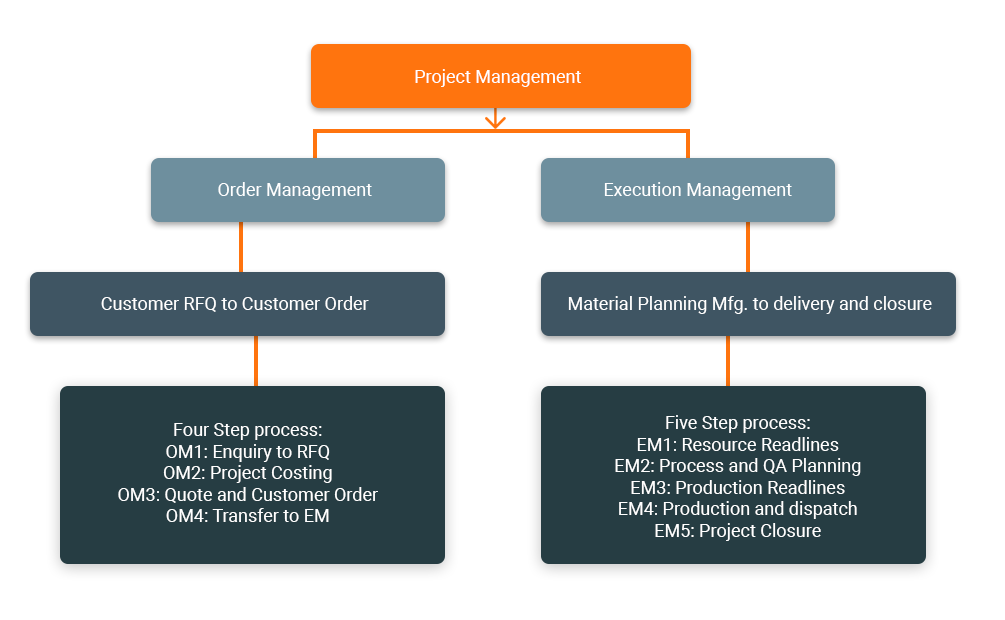Objectives
Financial
To ensure projects are executed in accordance with specified goals of cost, schedule, and performance
- Earned value
- Quality of product delivered (meeting specifications)
Project and Internal Processes
To maintain sound internal processes that enable efficient and effective execution of projects
- Consistency in estimating and risk definition
- Quality of planning and progress tracking
- Efficiency of project change management
Innovation and Learning
To use projects as a capability-building process and developing expertise
- Quality of project portfolio
- Progression on maturity models
Customer
To ensure that the organization delivers full satisfaction to customers during project execution
- Responsiveness
- Delivery
- Building level of mutual trust
Structure of Project Management

Approach
Rollout Approach
- Risks and constraints strategy
- Rollout increments
- Change resistance strategy
Operations Approach
- Cost analysis
- Time analysis
- Dependency analysis
- Network development
- Reporting
- Performance analysis
Closure approach
- Project closure meeting
- Project performance measures
- Lessons learned
- Process improvement report
- Action plans for remaining open items
- Knowledge management
Measures
Project Schedule Management
| Indicators of Process | |
| 1 | WBS |
| 2 | Schedule Management Plan |
| 3 | Activities duration |
Project Cost Management
| Indicators of Process | |
| 1 | Cost Estimates |
| 2 | Project Cost Baseline |
| 3 | Cost Control |
Project Communication Management
| Indicators of Process | |
| 1 | Customer communication |
| 2 | Project Performance Report |
Project Scope Management
| Indicators of Process | |
| 1 | Project Scope |
| 2 | Change Request and Approval Process |
| 3 | Change Control Board |
Project Integration Management
| Indicators of Process | |
| 1 | Project Charter |
| 2 | Project Management Plan |
| 3 | CFT meetings |
Project Risk Management
| Indicators of Process | |
| 1 | Risk Management Plan |
| 2 | Risk Register |
